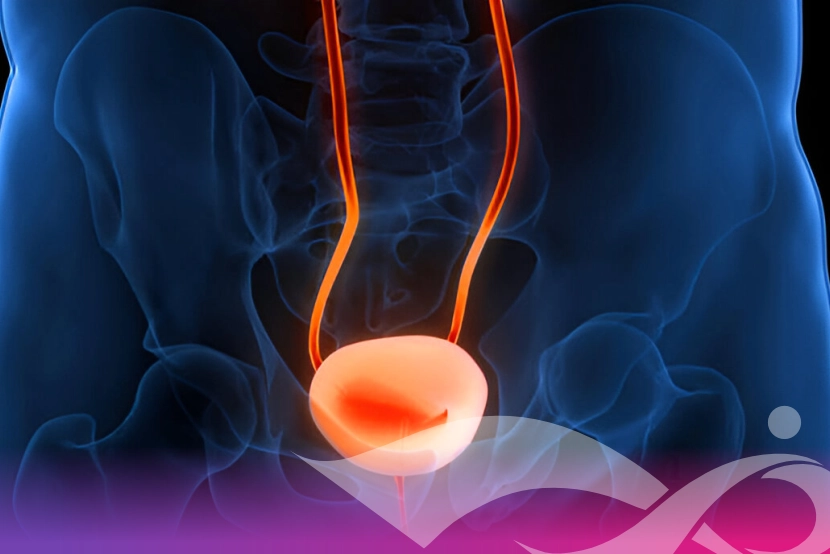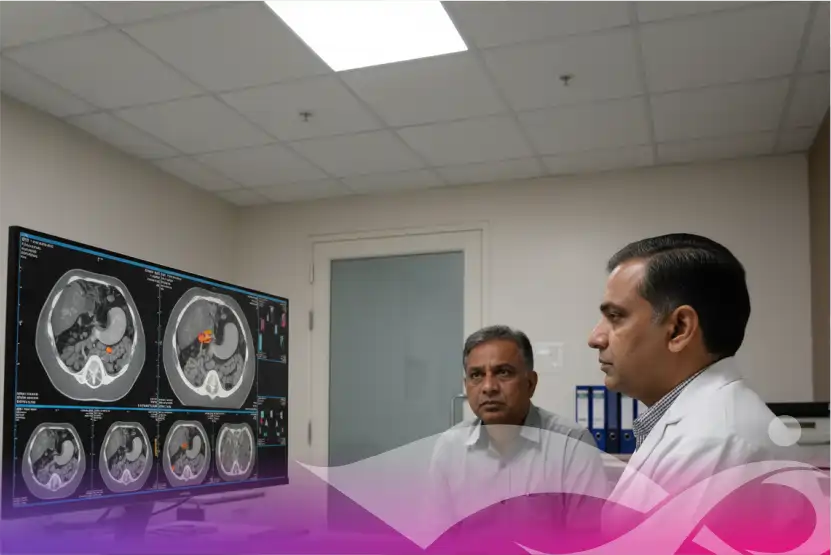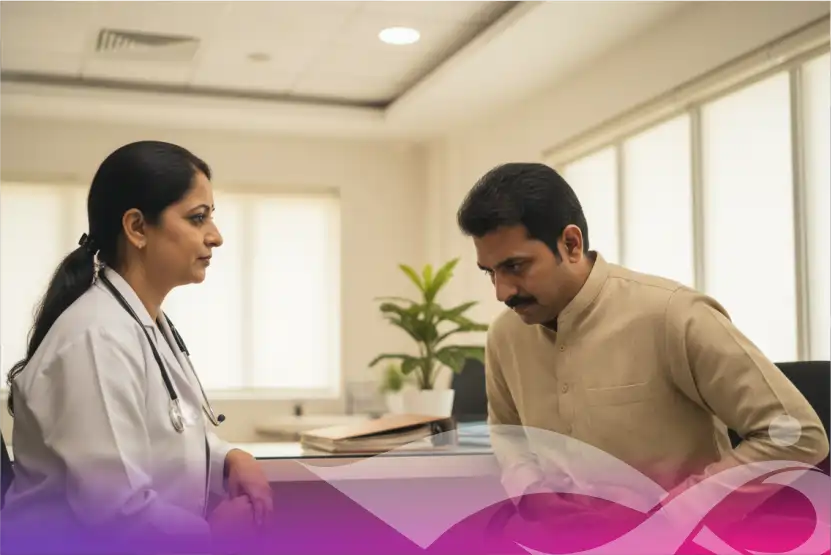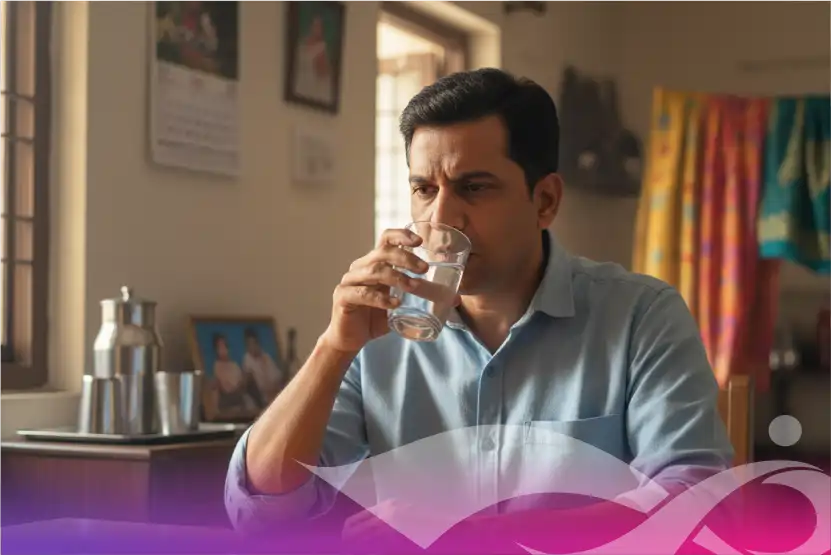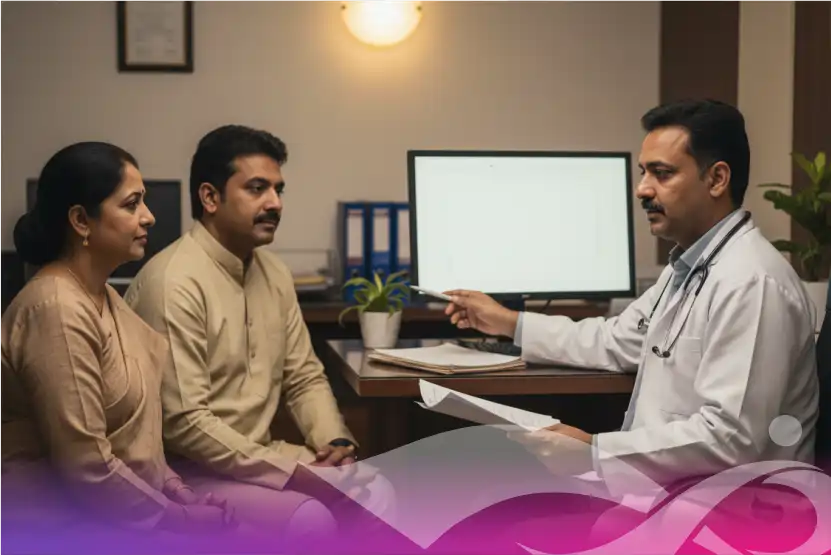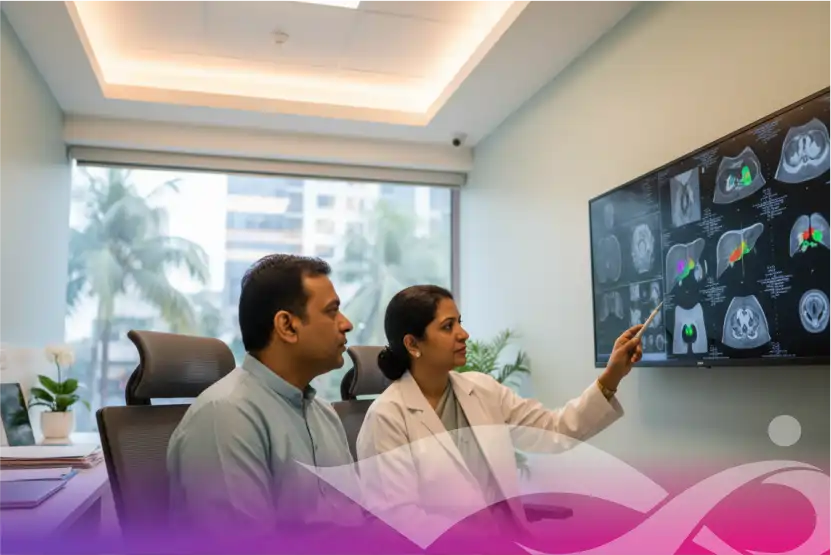At IOCI, many of the bladder cancer patients we see didn’t walk in because they thought they had cancer.
They came because of something “strange”—blood in their urine. Or because they were suddenly waking up five times a night to pee. Some were being treated for a UTI that just wouldn’t go away.
Often, it’s not dramatic. And that’s exactly why it gets missed.
Bladder cancer gives signs. They’re just quieter than most people expect.
Here’s what you shouldn’t ignore.
Blood in the Urine (Even Just Once)
This is the most common—and often the earliest sign—of bladder cancer.
Sometimes, it’s bright red. More often, it’s a rusty tint or pinkish hue you may only notice once or twice.
The tricky part?
It doesn’t always hurt. And it doesn’t always come back. But even a single episode should be enough to call your doctor.
We’ve had patients at IOCI INDIA whose bladder cancer was caught just in time—only because they decided not to ignore that one off-color bathroom visit.
Painful or Burning Urination
This is usually mistaken for a UTI or dehydration. But if it keeps coming back—especially without infection present—your doctor needs to rule out something deeper.
If standard treatments aren’t helping, or if pain worsens with time, it’s worth asking for a bladder scan.
Frequent Urination (Especially at Night)
Needing to pee more than usual, or struggling with urgency but passing only a little, may be related to a bladder issue.
Patients often ignore this because they assume it’s due to age, weather, or too much tea or coffee.
But when it’s sudden, unusual, or accompanied by any bleeding, it needs attention.
Lower Back or Pelvic Pain (Unexplained)
Bladder cancer can sometimes cause dull, persistent pain in the lower abdomen, sides, or lower back.
We often hear things like:
“It’s probably muscle strain.”
“I thought it was my mattress.”
But if the pain is localized, new, and doesn’t settle over days—especially if paired with urinary changes—it’s time for a check-up.
What We Do at IOCI
Early-stage bladder cancer is often highly treatable.
But it starts with the patient choosing to speak up.
Here’s how we support diagnosis and care at IOCI:
- Full urinary evaluation and history
- Urine cytology and imaging
- Biopsy and cystoscopy (if needed)
- Bladder cancer treatment via surgery, radiation, or targeted therapies
- Supportive care, including post-treatment monitoring, recovery diets, and pain management
We're equipped across all our centers to handle both diagnosis and treatment—because every day counts when it comes to early detection.
When in Doubt, Say It Out Loud
Here’s something we tell all our patients:
“If you’ve been thinking about a symptom for over a week, it’s time to talk about it.”
No one regrets getting checked. But too many regret waiting.
Consult our specialists at:
IOCI Noida, Greater Noida, Mumbai, Indore, Aurangabad, Agartala, Saharanpur, Kanpur and Jodhpur.






